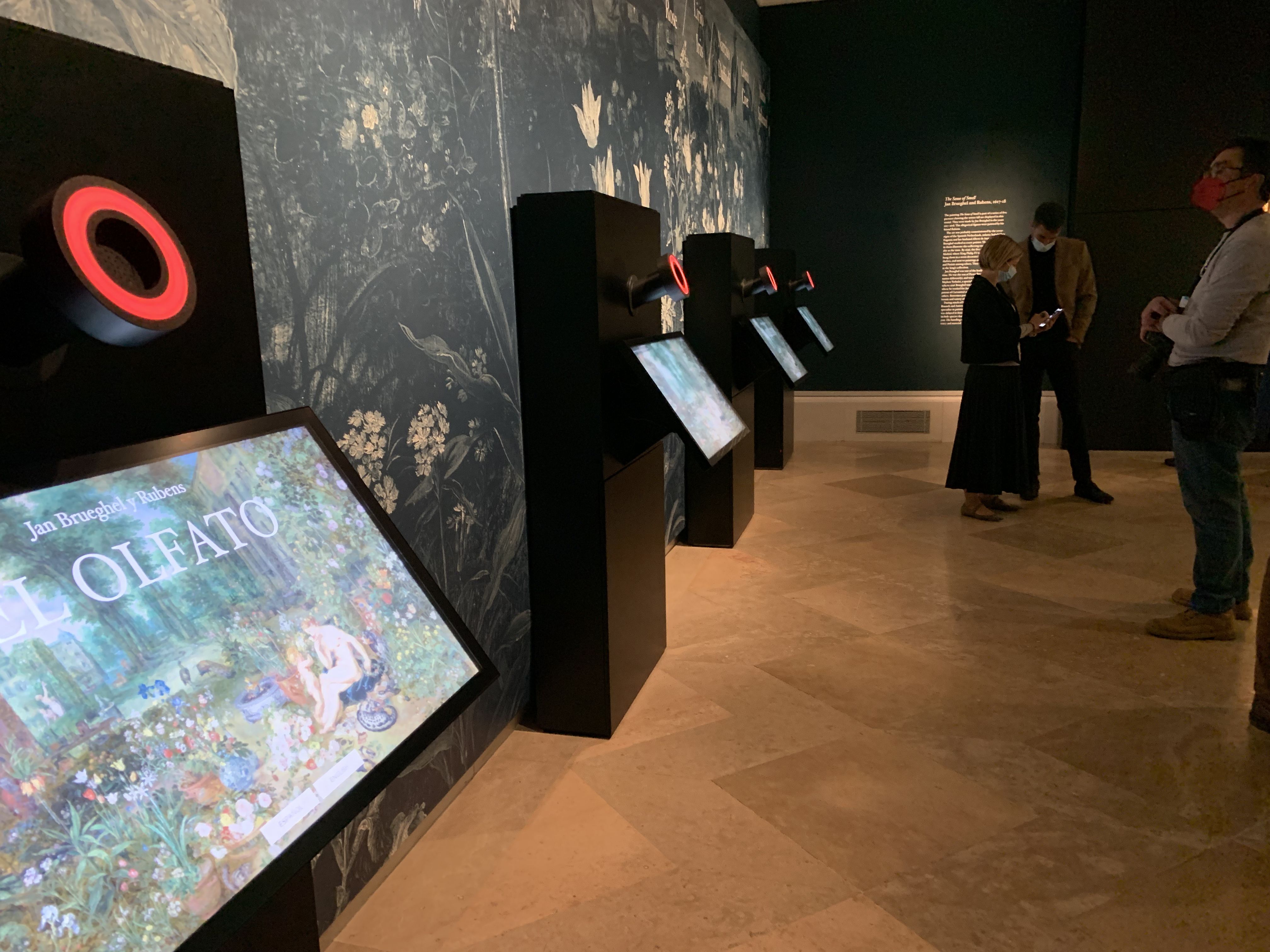Smell a picture. A new way to perceive the art, this is what has achieved Puig through AirParfum and that has incorporated in an exhibition of the Museum del Prado, specifically in the Room 83, of the Building Villanueva.
This exhibition situates in the National Museum del Prado, in Madrid, until the next 17 July, date that has been expanded, since the planned was that it finalised the next 3 July. Aqui, finds The Smell of Jan Brueghel the Old and Rubens, that star "The esenscia of a picture. An olfactory exhibition" in which they form part Alejandro Vergara, Boss of Conservation of Flemish Painting and north Schools of the National Museum del Prado, and Gregorio Alone, Perfumista senior of Puig and Academician of the Academy of the Perfume, that has created 10 scents that correspond to elements that can observe in the picture.
The art that smells
In the exhibition the visitors will be able to smell 10 scents by means of the technology of "AirParfum". As we know, the "AirParfum" has caused a big impact in the sector of the perfumery especially by his high innovation and by his effectiveness. This technology allows to smell until 100 distinct scents without that our smell sature, and this helps to respect, identify and value the nuances of each perfume guaranteeing an only experience. Only experience is what has achieved thanks to "AirParfum" and the art, where by means of the 4 difusoeres in the 10 tactile monitors that there is to disposal of the user in the room, the assistants will be able to smell (and travel olfativamente) to the 17th century, date in which it dates the pictorial work.
The visitors will be able to smell the different elements of the exposed work (that it belongs to the collaboration between both artists that represent an allegory of the five senses) as for example the ramillete of flowers that there is in the painting of Rubens and Jan Brueghel the Old, in which it finds the perfume Allegory of Gregorio Alone and is a combination of rose, jasmine and carnation. They will be able to experience this olfactory experience also in the gloves, since the elites of the Modern Age perfumed the gloves to avoid the bad smell. In this case, it finds a reproduction of the smell of a glove perfumed in amber and that imitates a formula of 1696, that contains resins, balsams, wood, essence of flowers and accompanied of a touch of fine leather that simulates the smell of the material of said piece.
In the picture of Jan Brueghel and Rubens find the smell of the higuera, again, a perfume elaborated by Alone, interprets said scent. Also we find in this work, another new olfactory experience, the flower of naranjo, as well as the jasmine. In the case of the smell of jasmine, the visitors can enjoy of a delicate and intense scent. On the other hand, also we can find in the work of Brueghel the smell to rose. Of this flower, Brueghel in his work painted until eight varieties, between them the cientifolia and the damascena, that are the most used in the sector of the perfumery. Besides, we find also the lily, the nardo, and finally the civeta, that is an animal of orígen African of the which in the past extracted the algalia, an element used in the past in the world of the perfumery that helped to prolong the length of the perfumes and his smell is strong similar to the excrement.
This exhibition is supposing a success rotundo and is thus that has decide that the exposicón prorrogue until the next 17 July. From his opening in April, have received roughly some 65.500 visits and more than 250.000 pulverizaciones of essence.
